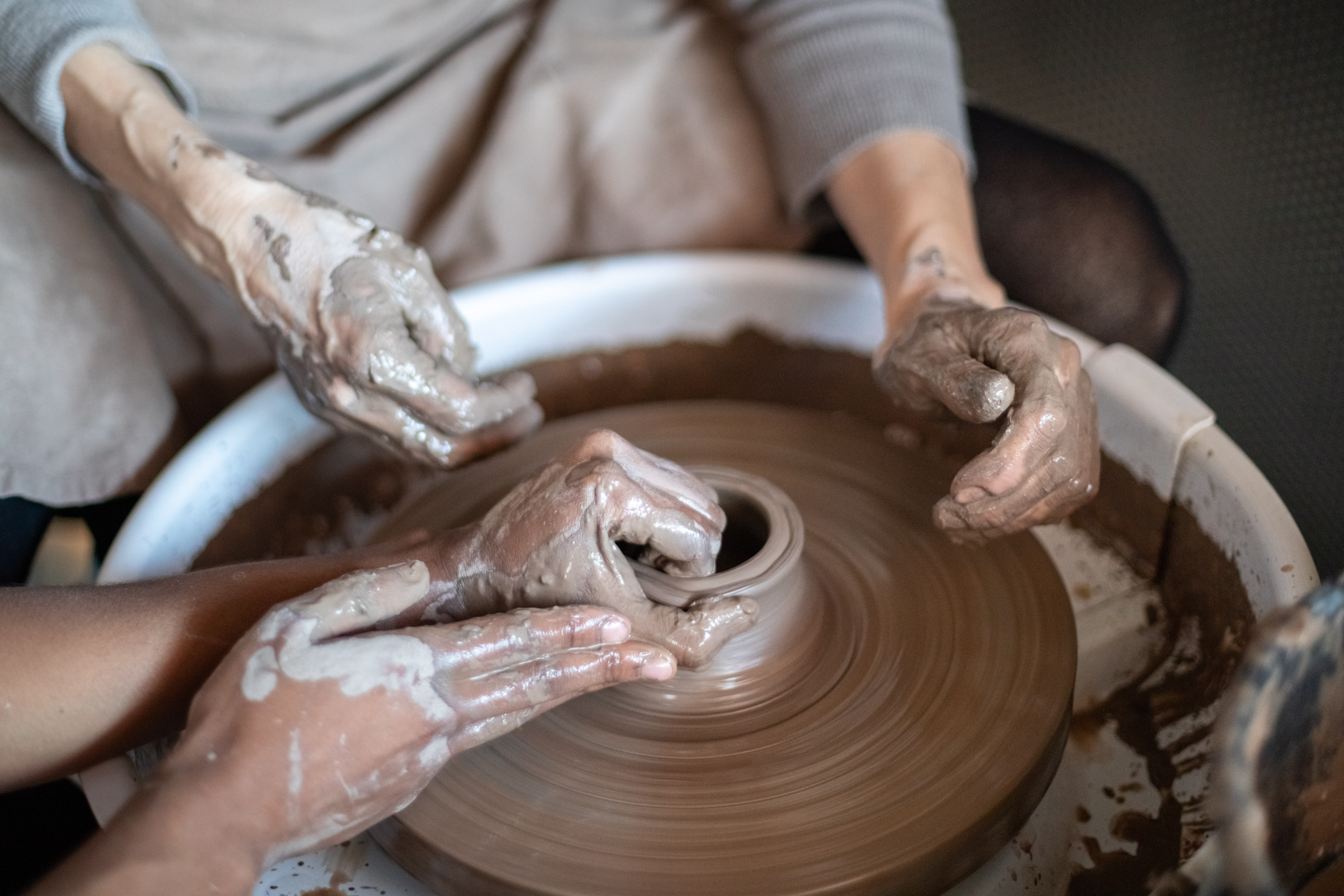Voir cette publication sur Instagram
Like Tiffany, many French people have chosen to change professions to turn to manual trades and thus revive the art of craftsmanship. According to Insee, the number of artisanal businesses increased by 11.3% between 2013 and 2014, reaching 1.2 million. In 2017, this number rises to 1.5 million and according to data from the Chambers of Trades and Crafts, France currently has 1.9 million artisanal businesses, across all sectors – food, construction, production, services – including 60,000 exclusively dedicated to crafts. Craftsmanship is therefore experiencing astonishing growth, years after being partially neglected in favor of new technologies, digitization, and artificial intelligence. Who are these 2.0 artisans and how do they bring a breath of modernity to these age-old professions?
A new breath after the Covid-19 pandemic
Ceramist, stonecutter, glassblower, leatherworker, cabinetmaker... Faced with classic models of thinking that measure a person's success in relation to their degree, mentalities are evolving to make room for listening to oneself and one's des.getExternalStoragetvoices. Craftsmen embody this change by returning to traditional crafts and showcasing their unique talents, bringing a fresh air of creativity and authenticity to their respective fields.
Sires. The Covid-19 pandemic has also shaken up our certainties by encouraging introspection and reevaluation of our choices. Many people have decided to turn to manual trades, reconnecting with the Earth and its materials, in search of authenticity and meaning. S desires. "I come from a very traditional family where you had to get a higher education degree to become a doctor or lawyer, so I did a double degree in business and engineering. But I quickly realized that I needed creativity, not to be stuck behind a desk. I love going from idea to object, I knew that with ceramics, I would be more free," explains Anne Loquineau, a young ceramist. New techniques, new influences, this generation of new artisans are taking on ancient practices to bring a breath of modernity. According to the Onisep, more than 1000 establishments are accessible for training in 281 art professions in France. "People are interested, classes and training sessions are Wow, can you believe it? It had never happened before," she notes. Usually more male-dominated, these professions are also experiencing a gradual feminization. Out of the 3.1 million artisans counted by the Chambers of Crafts and Artisanry, 23% are women. .Hello there! If you're a fan of arts and crafts, you're in for a treat! The art craft industry has been making a big comeback in recent years, but it really hit its stride in 2020 during the Covid-19 pandemic. The health crisis caused a shift towards manual and artistic disciplines, with values and consumption habits changing with each lockdown. Many people started exploring creative hobbies at home during this time, leading some to discover hidden talents and even pursue new careers. It's never too late to chase your passions, as Ana Bravo, a talented ceramist, notes that people of all ages are turning to vocational training to nurture their artistic skills. One exciting trend that emerged is the rise of artisanal workshops, where people can come together to learn, create, and share knowledge. Whether you're a seasoned expert or a complete beginner, these workshops offer a space to explore new and exciting crafts. So why not join in on the fun and discover the joy of handmade creations? Whether you prefer to work on your own or with a group, you'll have the opportunity to learn from professional artisans in disciplines like ceramics. For Jacob, a young IT professional, the choice of ceramics was a natural one. The tactile nature of clay and the satisfaction of mastering a new skill drew him in. The possibilities for creative expression are endless, making it an addictive joy.Voir cette publication sur Instagram
Are you ready for a fun and fulfilling experience?
These workshops are not just a solo activity – they are perfect for team building events, romantic dates, bachelorette/bachelor parties, and more. Sharing the experience with others makes it even more special. So why not consider gifting a workshop to a loved one for a memorable and creative experience together? Let your creativity flow and have fun exploring new crafts with others!

©Wecandoo
Come join us in the world of craftsmanship and human connection with Wecandoo. Meet Ana, Anne, and Tiffanny who share their passion through workshops on this amazing platform. Founded in 2017 by Edouard Eyglunent, Gregoire Hugon, and Arnaud Tiret, Wecandoo showcases over 3000 artisans and 6000 workshops all across France. Learn pottery, perfume making, beer brewing, knife forging, and so much more with these unique experiences waiting for you.
Sharing skills and ensuring stability
"Passion is key," emphasizes Ana, stressing the importance of passing on knowledge and experiences. For artisans like Ana, teaching their craft is a way to share their legacy and earn extra income. Despite the challenges of making a living solely through selling their creations, artisans thrive through platforms like boutiques, websites, and markets.
"If you seek a stable income, a traditional job might be a safer choice," Ana advises. Thanks to Wecandoo, each craftsman receives an average of 800€ per month, providing stability and financial security.Financial security is important for a stress-free future. 💰✨ #financialfreedom #moneygoals![[INVESTIGATION] Craft workshops, a growing activity of sharing shutterstock-2067250952](https://uploads.lebonbon.fr/source/2024/april/2060313/shutterstock-2067250952_1_2000.jpg)